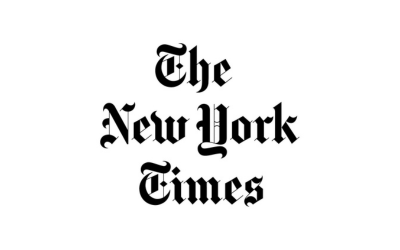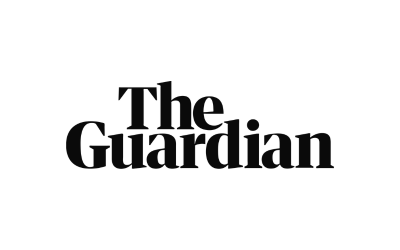MBTI Test - Career Edition
Unlock your ideal career path with our MBTI-based test—backed by psychology, tailored for you!
As Seen In
The MBTI Career Test: Your Roadmap to Professional Fulfillment
In today's competitive job market, finding a career that aligns with your natural strengths and preferences isn't just nice—it's essential for long-term success and satisfaction. The MBTI Career Test reveals the critical connection between your personality and your ideal professional path.
This specialized adaptation of the Myers-Briggs Type Indicator goes beyond basic personality traits to unlock insights about your work style, communication preferences, leadership approach, and ideal professional environment. When you understand your natural working style, you can make career decisions that leverage your innate strengths rather than fighting against your nature.
Career Clarity
Identify professional paths where your natural preferences become workplace advantages.
Workplace Fit
Recognize environments where your work style will be valued and rewarded.
Professional Growth
Develop targeted strategies to advance your career based on your type's strengths.
The Four Dimensions of Work Personality
Understanding these four key dimensions reveals your natural approach to workplace challenges, team dynamics, and career advancement. Each dimension represents a spectrum of preferences that shapes how you function professionally.
⚡ Work Energy Orientation
How you engage with colleagues and recharge during the workday:
Career Impact: Influences your ideal work environment, team size, communication style, and networking approach. Extraverts often excel in collaborative, high-interaction roles, while Introverts may thrive in positions requiring deep focus and independent work.
🔍 Information Processing
How you gather data and approach problem-solving at work:
Career Impact: Determines your approach to projects, learning style, and problem-solving method. Sensing types often excel in roles requiring attention to detail and practical implementation, while Intuitive types may thrive in strategic planning and innovation-focused positions.
⚖️ Decision-Making Style
How you evaluate options and make professional judgments:
Career Impact: Shapes your leadership style, conflict resolution approach, and workplace values. Thinking types often excel in analytical, objective-focused roles, while Feeling types may thrive in positions centered on people development and maintaining team harmony.
🧭 Work Structure Preference
How you organize your professional life and approach deadlines:
Career Impact: Influences your project management style, adaptability to change, and work-life boundaries. Judging types often excel in roles requiring organization and defined processes, while Perceiving types may thrive in adaptable positions that require quick pivots and flexibility.
Find Your Career Temperament Group
The 16 MBTI types cluster into four professional temperaments, each with distinct workplace strengths and career affinities.
Analysts
Strategic problem-solvers who excel in roles requiring systems thinking and innovation.
Career Strengths: Strategic planning, complex analysis, innovation
Types: INTJ, INTP, ENTJ, ENTP
Diplomats
People-focused visionaries who thrive in roles centered on development and meaningful impact.
Career Strengths: Coaching, communication, creating vision
Types: INFJ, INFP, ENFJ, ENFP
Sentinels
Practical organizers who excel in roles requiring reliability, structure, and attention to detail.
Career Strengths: Organization, implementation, maintaining quality
Types: ISTJ, ISFJ, ESTJ, ESFJ
Explorers
Adaptable troubleshooters who thrive in roles requiring tactical responsiveness and hands-on skills.
Career Strengths: Crisis management, negotiation, practical problem-solving
Types: ISTP, ISFP, ESTP, ESFP
Discover which professional temperament aligns with your natural strengths and workplace preferences.
FIND YOUR CAREER TYPETransform Your Professional Life With MBTI Insights
Understanding your work personality type unlocks practical applications across every aspect of your career journey:
🚀 Career Selection
Identify specific professions and industries where your personality type naturally excels, avoiding career paths that conflict with your core preferences.
Our detailed report highlights potential career matches ranging from emerging fields to established professions where your type tends to find greatest satisfaction.
💬 Workplace Communication
Learn to adapt your communication style to different personality types among your colleagues, managers, and clients for greater professional effectiveness.
Discover how to present ideas, provide feedback, and collaborate in ways that resonate with different workplace personalities.
👥 Team Dynamics
Understand how to leverage complementary personality types within teams to maximize collective performance and minimize friction.
Gain insights into your natural team role and how to collaborate effectively with colleagues whose work styles differ from yours.
🌱 Professional Development
Create targeted growth strategies that capitalize on your natural strengths while developing crucial skills that may not come as naturally.
Identify potential blind spots in your professional approach and develop techniques to address them for greater career advancement.
Career Transformations Through Personality Insights
Discover how understanding MBTI types has transformed real professionals' career trajectories:
Understanding I'm an ENFP explained my career restlessness. I shifted from a structured corporate role to consulting, where I now work on varied projects that leverage my creativity while still maintaining enough structure to deliver results. My job satisfaction has increased dramatically!
As an ISTJ, I struggled in a startup environment with constantly shifting priorities. After taking the MBTI Career Test, I transitioned to financial compliance where my detail-orientation and process-focus are considered strengths rather than limitations. The stress reduction has been life-changing.
Learning I was an INFJ helped me understand why I felt drained in sales but energized when mentoring new team members. I've since moved into a learning and development role where I can focus on depth rather than breadth in my interactions. My work now feels meaningful rather than exhausting.




